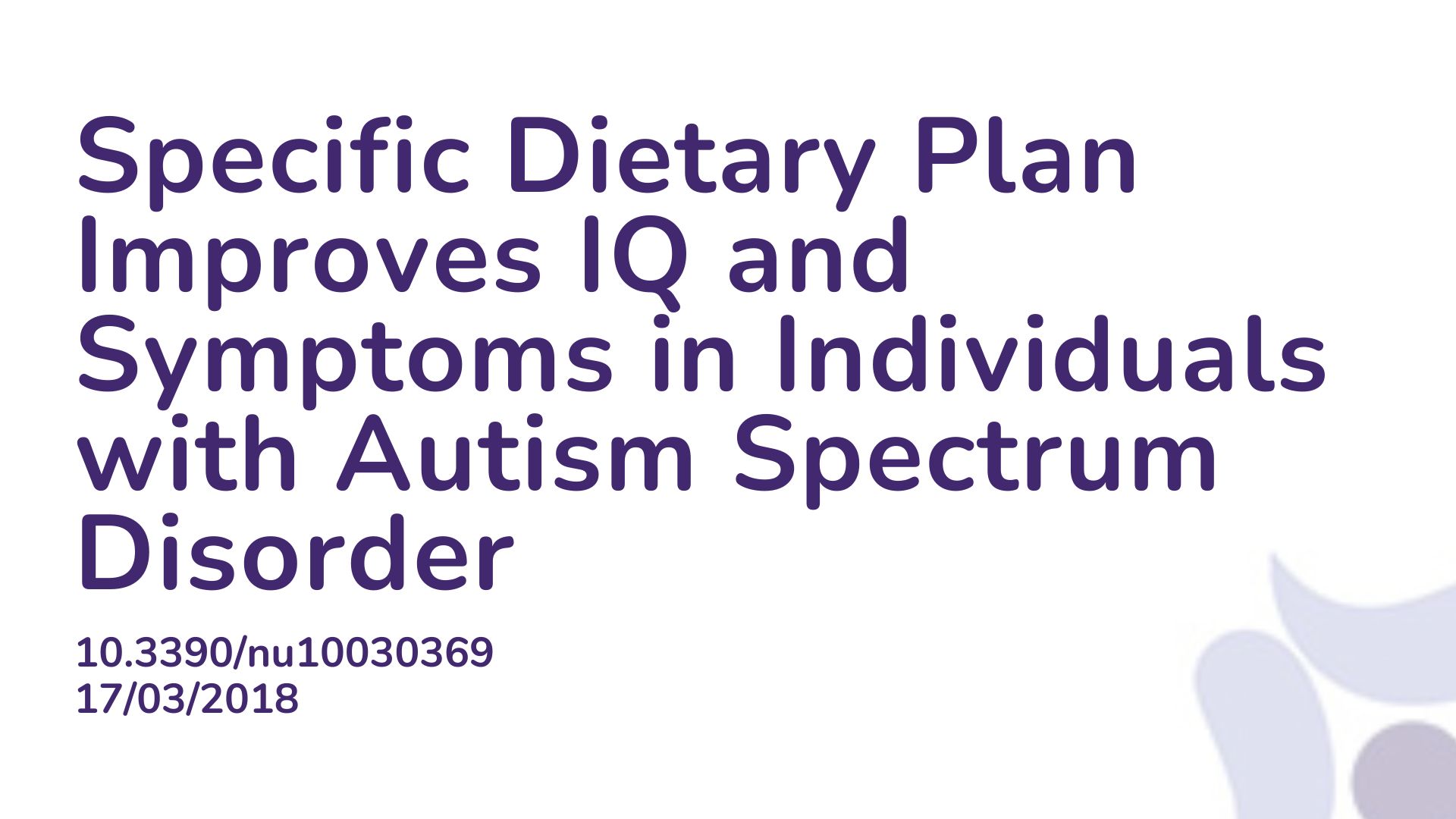Summary:
Numerous studies have shown that children and adults with Autism Spectrum Disorder (ASD) frequently experience nutritional deficiencies of varying degrees, but often severe. Children with ASD are also more likely to experience metabolic imbalances, and digestive issues. Research on nutritional and dietary treatments has highlighted the benefits of addressing these underlying conditions. This study tested a comprehensive nutritional and dietary plan on 67 children and adults with ASD, aged 3-58, and compared them to 50 neurotypical people. The treatment started with a special vitamin/mineral supplement, then added essential fatty acids, Epsom salt baths, carnitine, digestive enzymes, and a healthy gluten-free, casein-free, soy-free (HGCSF) diet. Over 12 months, the treatment group showed significant improvements in nonverbal IQ and ASD symptoms compared to the non-treatment group. The treatment group also had higher levels of EPA, DHA, carnitine, and vitamins A, B2, B5, B6, B12, folic acid, and Coenzyme Q10, implying that people with ASD are deficient in these nutrients. Parents found the vitamin/mineral supplements, essential fatty acids, and the healthy, gluten-free, casein-free, and soy-free (HGCSF) diet to be the most helpful. This paper also discusses specific research on vitamins, minerals, essential fatty acids, mitochondrial disorders, and gastrointestinal disorders (including digestive problems and food sensitivities).
Abstract:
This study involved a randomized, controlled, single-blind 12-month treatment study of a comprehensive nutritional and dietary intervention. Participants were 67 children and adults with autism spectrum disorder (ASD) ages 3–58 years from Arizona and 50 non-sibling neurotypical controls of similar age and gender. Treatment began with a special vitamin/mineral supplement, and additional treatments were added sequentially, including essential fatty acids, Epsom salt baths, carnitine, digestive enzymes, and a healthy gluten-free, casein-free, soy-free (HGCSF) diet. There was a significant improvement in nonverbal intellectual ability in the treatment group compared to the non-treatment group (+6.7 ± 11 IQ points vs. −0.6 ± 11 IQ points, p = 0.009) based on a blinded clinical assessment. Based on semi-blinded assessment, the treatment group, compared to the non-treatment group, had significantly greater improvement in autism symptoms and developmental age. The treatment group had significantly greater increases in EPA, DHA, carnitine, and vitamins A, B2, B5, B6, B12, folic acid, and Coenzyme Q10. The positive results of this study suggest that a comprehensive nutritional and dietary intervention is effective at improving nutritional status, non-verbal IQ, autism symptoms, and other symptoms in most individuals with ASD. Parents reported that the vitamin/mineral supplements, essential fatty acids, and HGCSF diet were the most beneficial.
Article Publication Date: 17/03/2018
DOI: 10.3390/nu10030369



